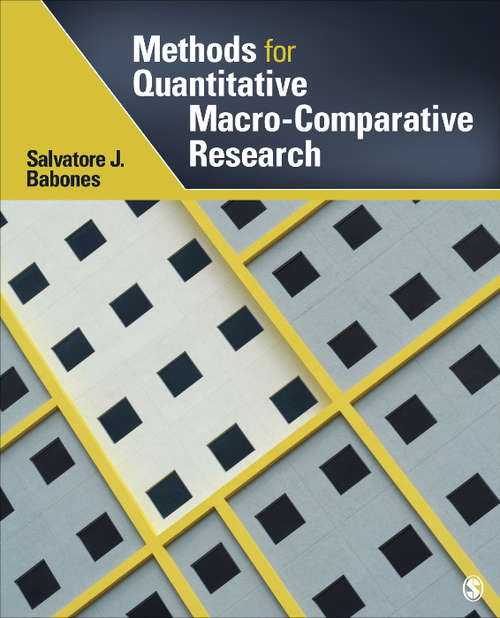
Methods for Quantitative Macro-Comparative Research
General non-fiction
Synthetic audio, Automated braille
Summary
Will a one-child policy increase economic growth? Does globalization contribute to global warming? Are unequal societies less healthy than more egalitarian societies? It is questions like these that social scientists turn to quantitative macro-comparative research (QMCR) to answer. Although many… social scientists understand statistics conceptually, they struggle with the mathematical skills required to conduct QMCR. This non-mathematical book is intended to bridge that gap, interpreting the advanced statistics used in QMCR in terms of verbal descriptions that any college graduate with a basic background in statistics can follow. It addresses both the philosophical foundations and day-to-day practice of QMCR in an effort to improve research outcomes and ensure policy relevance. A comprehensive guide to QMCR, the book presents an overview of the questions that can be answered using QMCR, details the steps of the research process, and concludes with important guidelines and best practices for conducting QMCR. The book assumes that the reader has a sound grasp of the fundamentals of linear regression modeling, but no advanced mathematical knowledge is required in order for researchers and students to read, understand, and enjoy the book. A conversational discussion style supplemented by 75 tables and figures makes the book′s methodological arguments accessible to both students and professionals. Extensive citations refer readers back to primary discussions in the literature, and a comprehensive index provides easy access to coverage of specific techniques.